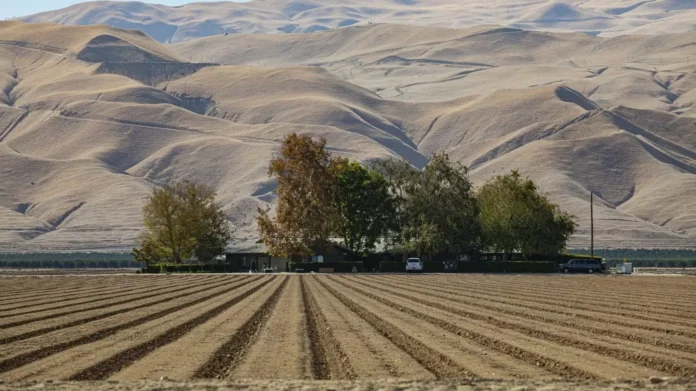Climate-induced warming is a major concern for the global food supply, as scientists warn that it is putting food production at risk. Despite efforts by farmers to adapt to these effects, a new study published in Nature has found that warming is actually having a negative impact on food production. This is in contrast to previous research which suggested that warming could potentially increase food production. With every additional degree Celsius that the planet warms, its ability to produce food is being jeopardized.
The study, conducted by a team of researchers from various institutions around the world, analyzed the impact of warming on crop yields. They found that for every degree Celsius increase in temperature, there is a decrease in crop yields by an average of 7.5%. This is a significant finding, as it means that as the planet continues to warm, our ability to produce food will decrease at an alarming rate.
One of the main reasons for this decline in crop yields is the changing climate patterns. As temperatures rise, there is a higher risk of extreme weather events such as droughts, floods, and heatwaves. These events can have devastating effects on crops, leading to lower yields and even crop failures. In addition, warming also affects the distribution of pests and diseases, making it harder for farmers to control them and protect their crops.
The study also found that the effects of warming are not limited to a particular region or crop. It is a global issue that affects all types of crops, from grains to fruits and vegetables. This means that no country is immune to the impact of climate change on food production. It is a problem that requires immediate attention and action from all nations.
The consequences of a decline in food production are far-reaching and could have a severe impact on the world’s population. With a growing population and increasing demand for food, it is crucial that we take steps to protect our food supply. This is not only a matter of food security but also has implications for global health and economy.
In the face of these challenges, farmers around the world are taking adaptive measures to stymie the effects of climate change on their crops. They are using advanced technologies, such as precision farming, to monitor and manage their crops more efficiently. They are also implementing sustainable practices, such as crop rotation and conservation agriculture, to improve soil health and resilience to extreme weather events.
Governments and international organizations are also taking steps to address this issue. The Paris Agreement, signed by 195 countries, aims to limit the global temperature rise to well below 2 degrees Celsius. This is a crucial step in mitigating the effects of climate change on food production. In addition, investments in research and development of climate-resilient crops and technologies are essential to ensure food security in the face of warming temperatures.
There is also a need for global cooperation and collaboration to tackle this issue. Developing countries, which are more vulnerable to the effects of climate change, need support from developed nations to adapt to these changes. This could include providing financial aid, technology transfer, and knowledge sharing.
It is also important for individuals to play their part in addressing this issue. Simple actions like reducing food waste, supporting local and sustainable agriculture, and making more environmentally conscious food choices can make a significant impact. By working together, we can make a difference in safeguarding our food supply for future generations.
In conclusion, the new study published in Nature has shed light on the alarming impact of climate-induced warming on global food production. It is a wake-up call for us to take immediate action to mitigate the effects of warming on our crops. With farmers, governments, and individuals working together, we can ensure a more resilient and sustainable food supply for all. Let us act now before it’s too late.

